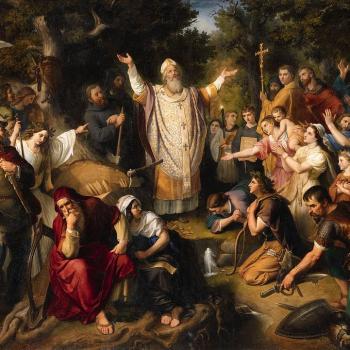The question “are sacraments magic?” is one that comes up surprisingly often in my life. It’s not a new question. Both magic and sacraments would seem to hold claims to using the natural world to accomplish supernatural effects, and it seems only natural that folks would begin to associate the two. People have associated the sacramental life of the church with divination and sorcery for many centuries. Interestingly the words “hocus pocus” are derived from the Latin translation of Jesus words “this is my body” or “hoc est corpus” in Latin. In spite of some parallels the answer to the question is NO!
Sacraments are not Magic.
There are a couple of ways to distinguish this. In ritual studies sacramental rituals are distinguished from magical rituals by looking at the ends to which they seek to attain. Boiling it down to as simply as possible one could say:
- In magic the rituals function as a means to an end
- In the sacraments the ends are a means to the ritual
“Sacraments always involve the matter of this world…What happens then? Is it that God takes inert, dead matter and overpowers it to make it a means of sanctification for us? That would be magic. And this is one of the problems which some denominations have had in the course of practically half of Christian history, confusing sacraments and magic.
The difference – if I may put it, of course, in a very short manner – is this: An act of magic is an act of power, an act by which one endowed with knowledge can overpower, subjugate, enslave and use to his purposes either matter or persons. Sacraments are divine acts that liberate, set free. And this I think requires some explanation. In Orthodox theology the matter of this world is not dead, inert mater. God has created nothing which is incapable, in a way unfathomable to us, of communing with him, of relating to him, of rejoicing in him, of being fulfilled in him.”
I think Bloom puts it much better then I could myself so I will leave it at that. If you have any questions please leave them in the comments below!













